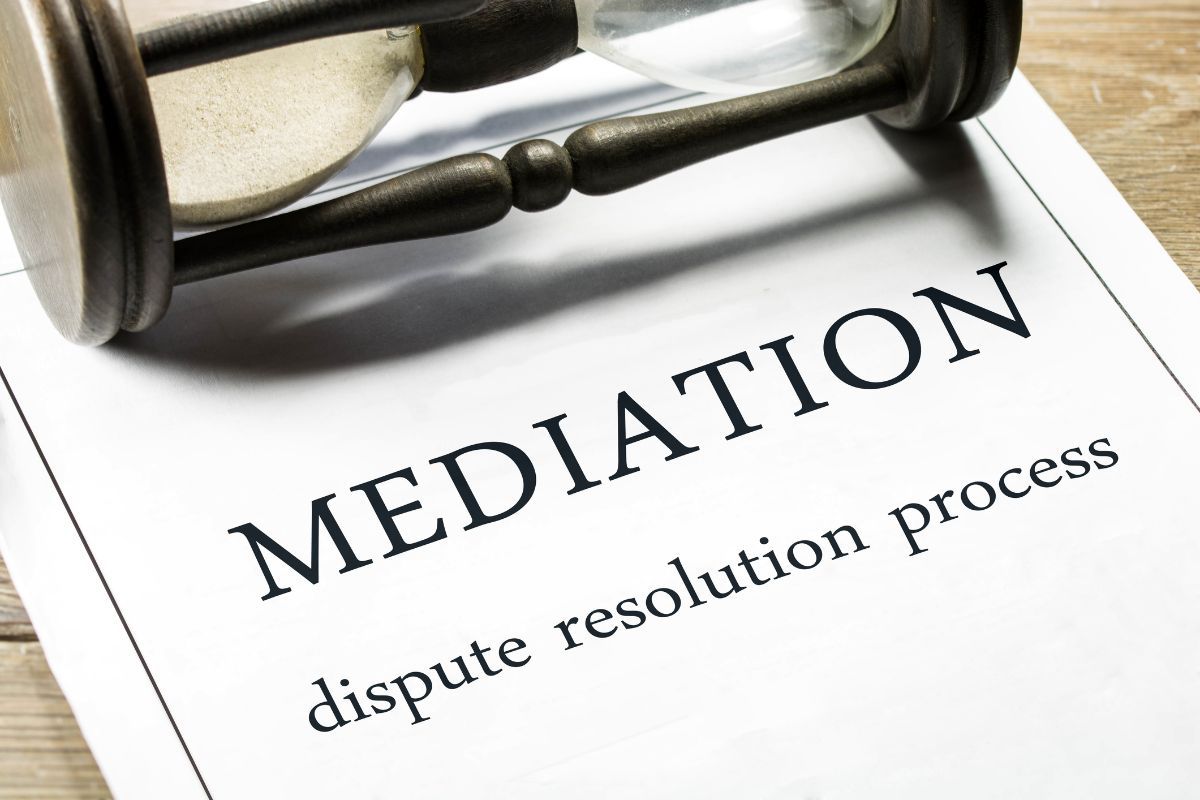If you have a legal dispute, consider the many good reasons to mediate it. Mediation is a different way of trying to resolve a legal issue that would otherwise be decided by a judge or jury in court. Using an alternative dispute resolution method like mediation is increasingly popular for a reason. Choosing to mediate can be less confrontational than going to court, it involves working toward a mutual solution, it is more informal, it can save time, and it may save some money. If you are involved in a legal dispute and would like to discuss going to mediation, contact our firm’s attorneys for advice on how to proceed.
-
Mediation Can Be Less Confrontational
Filing a lawsuit in court is inherently confrontational. You must publicly allege that someone else has violated a law, then present evidence to a judge or jury to prove the violation. Lawsuits may become extremely contentious when liability is disputed. Reputations and lots of money could be at stake.
Many potential litigants would prefer a less confrontational environment for resolving legal disputes. Mediation involves discussing the allegations with a neutral mediator. Typically the discussion happens at a mutually agreed place and time, like a suite of meeting rooms in an office building. Each party and their attorney usually have their own meeting room. The mediator visits each room and helps the parties talk through the facts and laws that may apply. He or she may ask questions or make comments about the strength of the case. The parties may stay in their separate rooms or meet together with the mediator for discussions. It is a very different environment from a courtroom. The less confrontational nature of mediation may be more conducive to reaching a resolution of a dispute.
-
Mediation Involves Working Towards a Mutual Solution
The mediator’s job during a mediation involves probing for common ground, pointing out weaknesses in a party’s position, or emphasizing the strength of one party’s case. These points of discussion aim to help the parties work towards a mutual solution to their dispute. For example, the mediator may ask one party to make a monetary settlement demand based on the information exchanged at the mediation. Then the mediator may talk with the other party about why it might want to accept the demand or counter with a different number. The mediator tries to bring the parties together to find a settlement payment on which they can agree. All of these discussions are aimed at reaching a resolution that works for everyone.
-
Mediation Is More Informal than Court
The way mediation works is much more informal than going to court. Rather than speaking from a podium to a judge at the front of a courtroom, parties who mediate sit in conference rooms. They discuss issues among themselves, with the mediator, or with the mediator and the other parties. Documents, facts, and figures get exchanged informally with the mediator’s assistance. This simply doesn’t happen in court, where the lawyers present the carefully cataloged evidence to the judge or jury and question witnesses.
Moreover, mediation allows the parties to keep information about their dispute confidential. When you file a lawsuit in court, most information about the suit is publicly available. The public may be able to sit in on hearings or the trial. In contrast, a mediation is private and not open to members of the public. Many parties to mediations agree to sign confidentiality agreements protecting the information they discuss from public disclosure. Relevant laws also protect certain parts of a mediation from disclosure. The expectation of privacy at a mediation may lead to greater informality or greater willingness to freely discuss the legal issues at hand.
-
To Mediate May Save Time
Court cases can drag on, especially with increasingly common case backlogs and overworked court staff. It could take a long time to resolve a lawsuit if you are committed to seeing out the case in court. Many potential litigants these days opt to mediate or use some other alternative dispute resolution methods because they save time.
When you work with a private mediator, you and the other party agree on a day and time to meet (subject to the mediator’s availability). Because mediators are not acting judges, their calendars are typically not crowded with hearings and other demands. You can schedule a mediation relatively quickly, prepare on your own schedule, and try to resolve your dispute in person on the day of mediation. If you do reach a consensus that day, your lawyers can prepare a settlement agreement right away. Signing a settlement agreement helps you avoid court and may save time.
-
Mediation May Save Money
Because court cases may take more time than mediation, they also may cost more money. Going to court can be expensive. Taking a case to trial can be even more so. With mediation, you may avoid the need for going to court and dealing with a trial altogether. While mediation will not necessarily save money, it certainly has many practical advantages. Everyone discusses the case in one place at a planned time, with the goal of reaching a resolution and avoiding a protracted court battle. Talk to a local lawyer to learn if mediation is an option for your legal issue.
Interested in Mediation? Learn More from Our Firm
At Henke, Williams & Boll, we look to mediation and other alternative dispute resolution methods as valuable tools for our clients’ legal disputes. We help our clients mediate and find the best solution possible, customized to their unique situations. Our experienced and knowledgeable lawyers advise Houston area clients on a variety of legal issues. If you would like to mediate a dispute, set up a consultation by calling (713) 936-5521 or visit our website to conveniently contact us.


